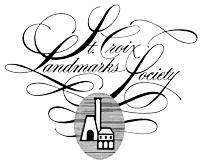Alexander Hamilton
by Florence Lewisoh, 1963
from "Divers Information on the Romantic History of St. Croix"
Some two hundred years ago there was born on Nevis in the British islands a somewhat small, frail and intense boy with blue eyes and red hair. He was the son of an impecunious third son of a Scottish Laird, and of Rachel Lavien. The date of his birth is now set at 1755 by newly discovered Danish documents. This makes Alexander Hamilton two years older than was thought.
His mother, Rachel, had been married some years before in St. Croix at Estate Grange to a much older and cruel husband, John Michael Lavien, who owned a small sugar plantation here. After five years of marriage and the bearing of one son to Lavien, Rachel left him when she was 21. With her mother she moved back to her old home on Nevis where she met James Hamilton. The two fell in love and moved to St. Kitts to live together. Lavien refused Rachel a divorce.
Times were bad financially in parts of the Caribbean and James Hamilton found it hard to make a living for his family. He was sent to St. Croix on a legal mission and Rachel came with him, bringing their two sons. After some months, Hamilton returned to the British islands and Rachel stayed on here with relatives, opening a small shop where the boy Alexander helped out.
When Alexander was eleven he was recognized as being unusually precocious despite lack of much schooling, and he was given work by a hardware merchant, Nicholas Cruger, in his store.
Meanwhile, Lavien had divorced Rachel but Danish law forbade her to remarry. She died on St. Croix when Alexander was thirteen and her gravestone can be visited today at Estate Grange. All her property was claimed by her divorced husband.
Alexander worked hard and read incessantly. He taught himself French, which came in handy later when as aide-de-camp to George Washington he became friends with Generals Lafayette and Rochambeau.
St. Croix was devastated by a major hurricane which destroyed or damaged some 500 buildings in 1772 and Alexander wrote a long and vivid letter to his father on St. Vincent island describing the horror. The letter was published in the Royal Danish-American Gazette, and so impressed friends and others that they scraped together enough money to send him on his way to school in the British Colonies in North America.
Young Hamilton left in mid-summer for Boston on the ship 'Thunderbolt" enroute for New York. On the way the ship caught fire and he helped to battle it for twenty-four hours until it was under control. On his arrival, Alexander went to a boarding school for one year and then entered the already famous King's College (now Columbia University) which at the time had a faculty of only three persons.
In a few short years the ambitious boy became a leader in the Revolution and played a major part in the formation of the original thirteen United States of which he became the first Secretary of the Treasury.
